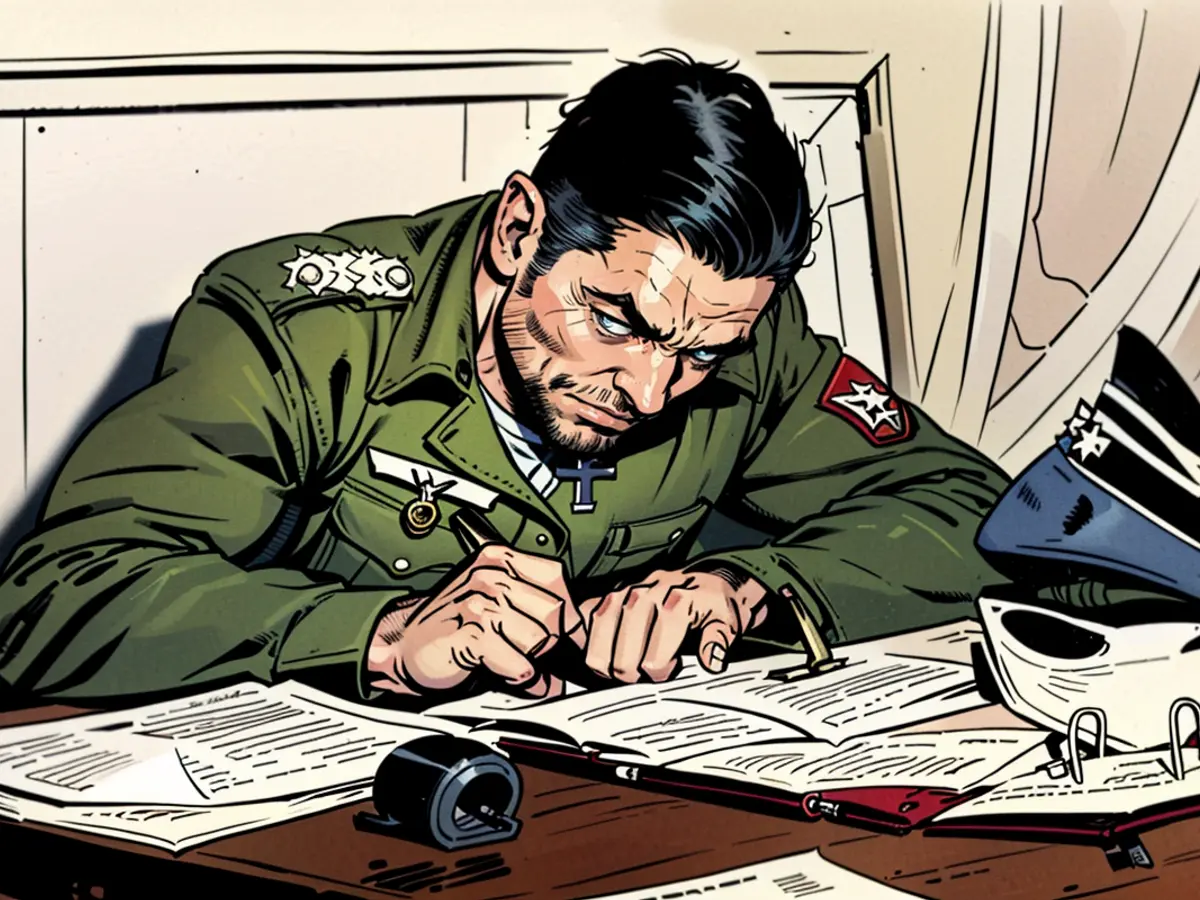Was the alleged "Salvator Parisius" truly deserving of heroic status?
In August 1944, Paris was spared from destruction by the Nazi regime, a feat achieved by Wehrmacht general Dietrich von Choltitz, despite an order from Adolf Hitler to leave the city in ruins. This defiance of orders put von Choltitz's life and his family's safety at risk. "His justification was: I will not carry out such orders," Timo von Choltitz, his son, revealed in an interview. Historians have become increasingly critical of von Choltitz's role in this event.
The tale of this "good German" who saved the French capital from decay has been retold in numerous books and films, such as the 1966 movie "Is Paris Burning?" starring Gert Fröbe as the general, and Volker Schlöndorff's 2014 adaptation, "Diplomacy."
"The French hailed my father as the savior of Paris," asserts Timo von Choltitz, describing his father's affection for the city. "He became a legend." A gracious letter from the Paris mayor of 1954 reveals von Choltitz's favorable reputation at the time: "Dear General, (...) you have accomplished a historic feat - one of those that could draw our two countries closer together," wrote Pierre Taittinger prior to the tenth anniversary of Paris's liberation.
A short while earlier, von Choltitz had published his memoirs, creating a heroic image that was well-received in the context of efforts to reconcile Germany and France. He asserted that "the orders came from a man who had been entrapped in madness" (paraphrased).
Von Choltitz was interred in Baden-Baden in 1966, with French military officials attending the funeral. "He was a symbol of mutual benefit," remarks French historian Françoise Cros de Fabrique, who highlighted in her 2019 documentary that von Choltitz's motives were far from purely moral. "Von Choltitz's primary objective was to safeguard his own skin," she asserted. Moreover, he lacked the resources to destroy Paris.
Previously, he displayed little moral qualms about wreaking havoc
Swedish consul in Paris, Raoul Nordling, convinced him that he would only face imprisonment, not prosecution as a war criminal, if he did not carry out Hitler's decree. Nordling had attempted to mediate between the French Resistance, the German von Choltitz, and the Allies. French historian Fabrice Virgili, who edited Nordling's memoirs, also views von Choltitz as anything but heroic. "Von Choltitz was anxious about falling into the hands of the French Resistance," he explains. Earlier in the war, he had demonstrated little reluctance to destroy cities. "He was notorious for leveling Sevastopol," Virgili recalls, referencing the role von Choltitz played in the battle for the largest city on the Crimea.
Even among German historians, there is a general consensus that von Choltitz's heroic image is largely unwarranted. His memoirs, published in the 1950s and 1960s, contributed to the establishment of the "myth of the pure Wehrmacht," as John Zimmermann of the Center for Military History of the German Armed Forces in Potsdam notes. Since these memoirs were published prior to historical records becoming accessible, their authors seized interpretive dominance. Many high-ranking Wehrmacht members aspired to present themselves as mere pawns in Hitler's hands. Nevertheless, von Choltitz acknowledged the Wehrmacht's involvement in atrocities, emphasizes Potsdam military historian Sönke Neitzel.
Von Choltitz never faced trial as a war criminal
Transcripts of his recorded conversations during his British captivity reveal that von Choltitz was a colorful individual, with self-preservation being a top priority. "Von Choltitz remained an icon for some time, but a more nuanced perspective is warranted 80 years later," observes Neitzel. It is undeniable that von Choltitz spent very little time in Paris, likely trying to prolong his stay unscathed until the Allies arrived. In June, the Allies had invaded Normandy and were advancing on Paris. On July 20, an attempt was made to assassinate Hitler, which failed.
On August 9, 1944, von Choltitz arrived in Paris, and two weeks later there was a general strike and an uprising by the French Resistance. Hitler's decree was emphatic: "Paris must not, or only as a battlefield, fall into the enemy's hands." After 16 days in the city, on August 25, 1944, von Choltitz surrendered without implementing the Führer's order. The reasons for his actions remain unclear, though he managed to avoid prosecution as a war criminal.
Despite his previous actions involving the destruction of cities, Swedish consul Raoul Nordling convinced General Dietrich von Choltitz that he would only face imprisonment, not prosecution as a war criminal, if he did not carry out Hitler's decree to leave Paris in ruins. Despite von Choltitz's notoriety for leveling Sevastopol earlier in the war, the French hailed him as the savior of Paris, leading to a favorable reputation for him at the time.








